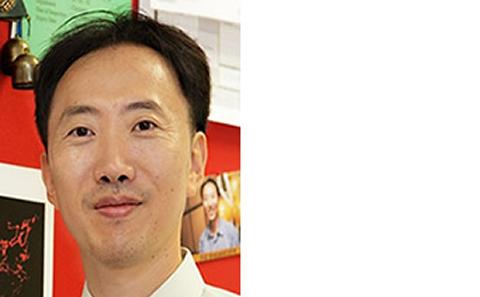Fluorescent Sensor and Probe Development for Almost Everything Seminar

- Time:
- 11:00
- Date:
- 29 July 2016
- Venue:
- 27/2003, Highfield Campus, University of Southampton, SO17 1BJ
For more information regarding this seminar, please email Ethan Howe at E.Howe@soton.ac.uk .
Event details
Prof Chang Young-Tae presents a seminar as part of the Functional Inorganic, Materials and Supramolecular Chemistry Research Group's seminar series
Conventional sensor development requires defining the target and design of sensor, which is so-called hypothesis driven approach. While powerful, this approach cannot be applied to unknown target or difficult to be applied to complex of analytes. To overcome the limitation, we have devised a Diversity Oriented Fluorescence Library Approach (DOFLA) where a combinatorial synthesis of fluorescent dye is combined with unbiased screening to accelerate the sensor development. More than 10,000 synthetic organic dyes were constructed as a tool box, and numerous analytes have been tested, yielding systematic platform for sensor development for almost everything. Not only physical analytes, phantom target such as “temperature” is also pursued with biological application. Complex or unknown target problem with biological systems were also challenged, and various cell type selective probes for live bioimaging were developed. The sensors and probes developed in this study will be freely available for the chemical and biological community for common usage.
Selected reference
NeuO: a fluorescent chemical probe for live neuron labeling, Er, J. C.; Leong, C.; Teoh, C. L.; Yuan, Q.; Merchant, P.; Dunn, M.; Sulzer, D.; Sames, D.; Bhinge, A.; Kim, D.; Kim, S. M.; Yoon, M. H.; Stanton, L. W.; Je, S. H.; Yun, S. W.*; Chang, Y. T.* Angew. Chem., Int. Ed. Engl. 2015, 54, 2442-2446. Highlighted at “A library of bright ideas, C&En News, 2015 (March 23), 93 (12), p 39-40”
Speaker information
Prof Chang Young Tae, National University of Singapore, Chemistry. Young-Tae Chang was born in Busan, Korea, in 1968. He studied chemistry in Pohang University of Science and Technology (POSTECH, Korea) and received his B.S. in 1991. After one and half years of army service in Korea, he started his graduate study at POSTECH and received a Ph.D. in 1997 under the supervision of Prof. Sung-Kee Chung, working on the divergent synthesis of all possible regioisomers of myo-inositol phosphates. He did his postdoctoral work with Prof. Peter Schultz at UC Berkeley and The Scripps Research Institute. In 2000, he was appointed assistant professor at New York University and promoted to associated professor in 2005. He received the NSF Career award in 2005 and his research interests have been chemical genetics, molecular evolution, and artificial tongues. In September, 2007, he moved to National University of Singapore and Singapore Bioimaging Consortium. He is a full professor of Chemistry and leader of Medicinal Chemistry Program of NUS, and Lab Head of Bioimaging Probe Development at SBIC, Biopolis. He has published more than 300 scientific papers / 3 books and filed 50 patents so far.